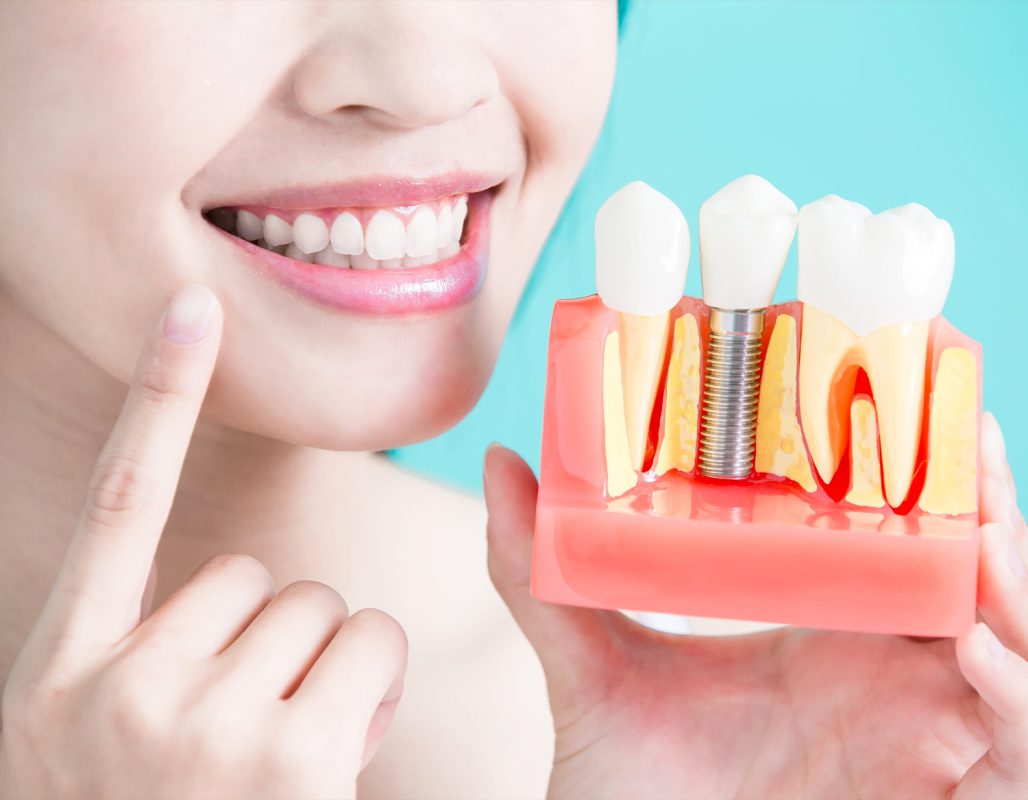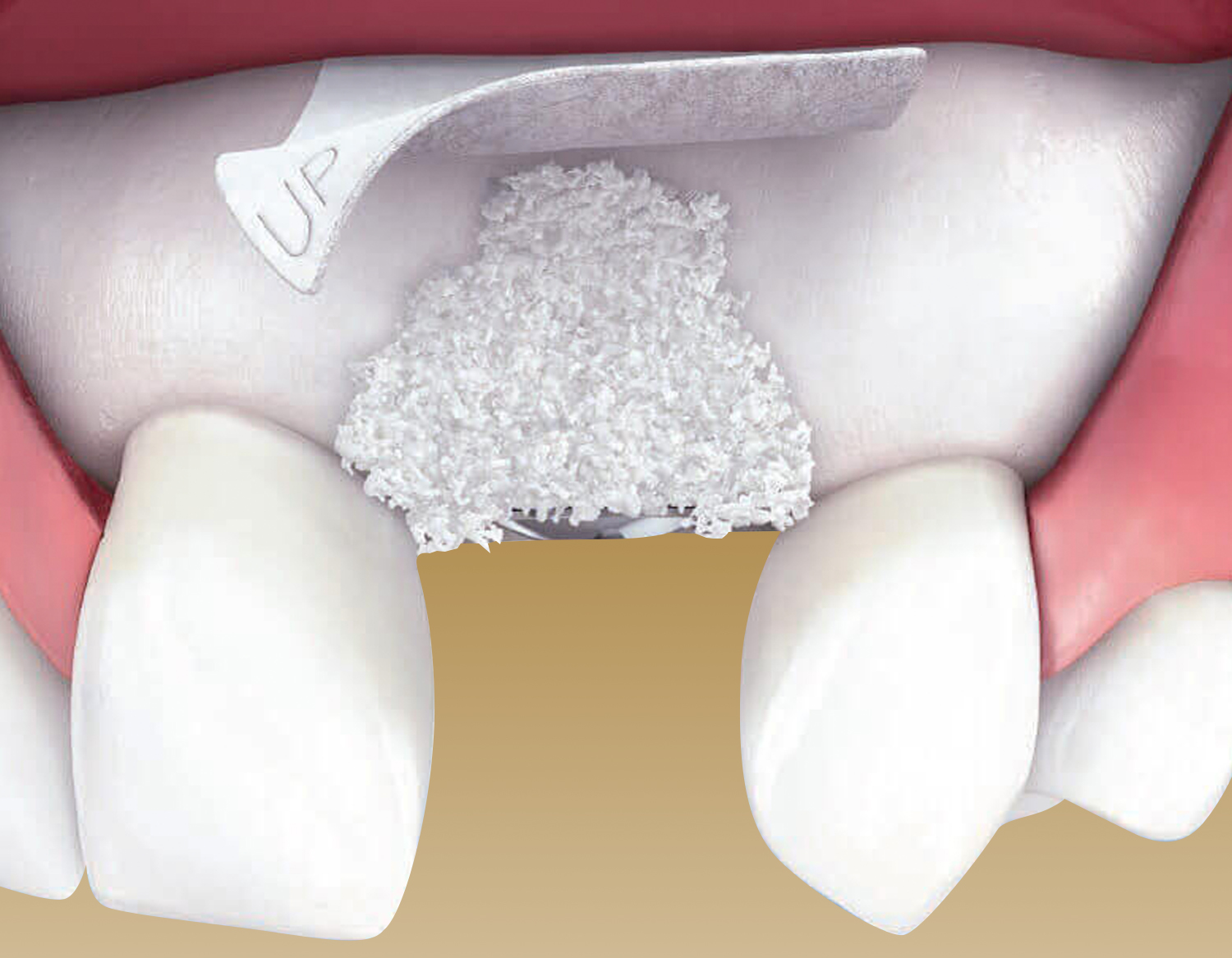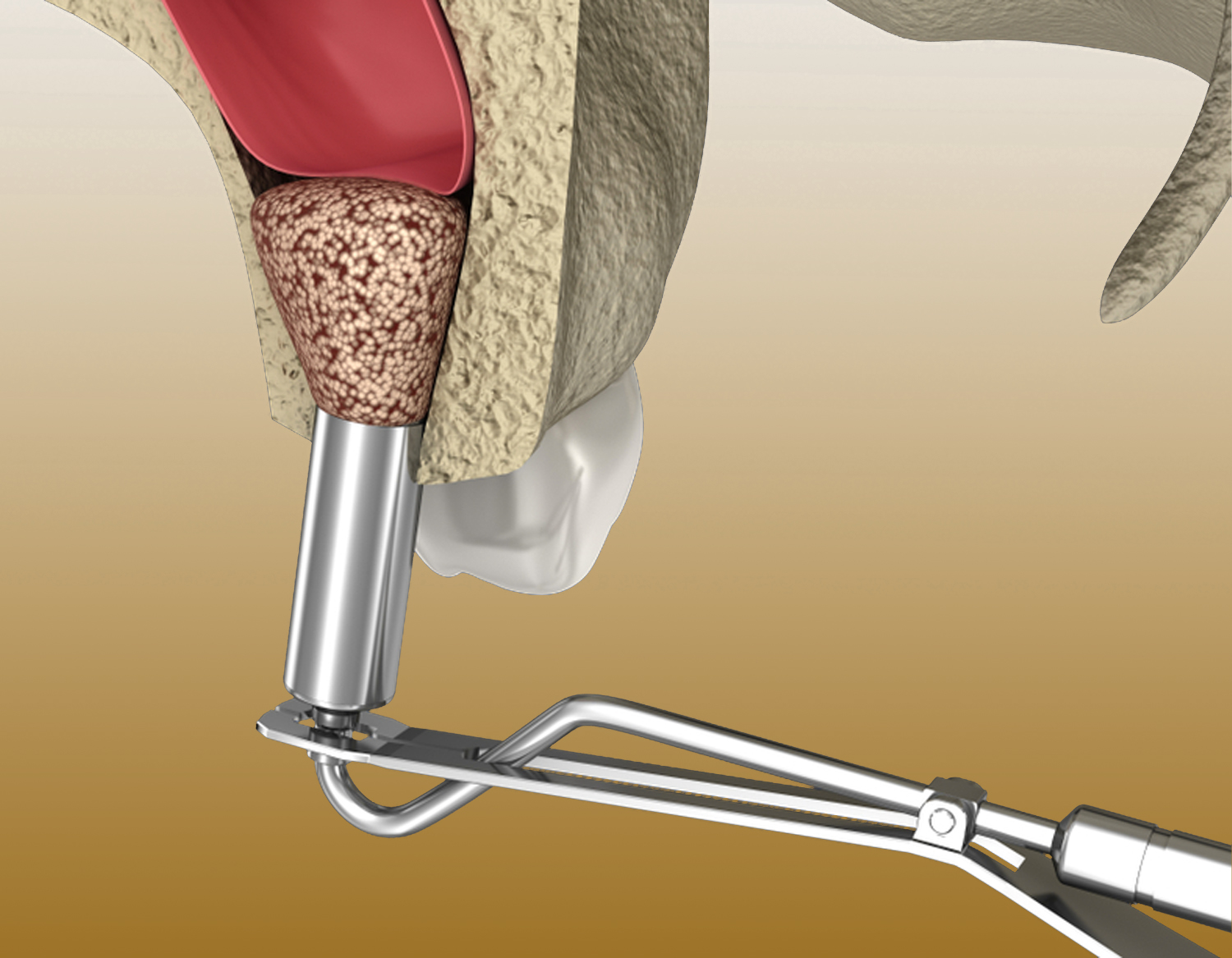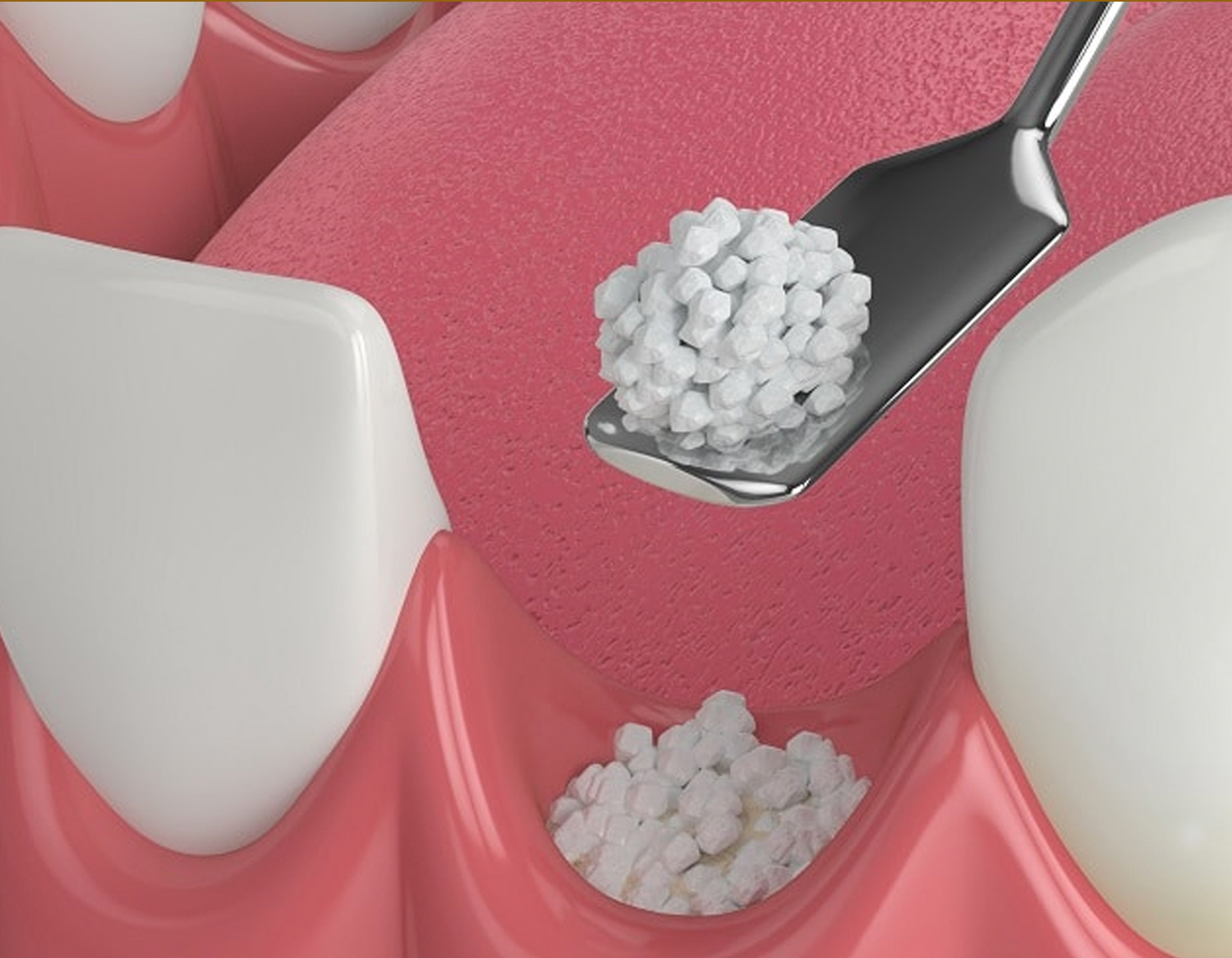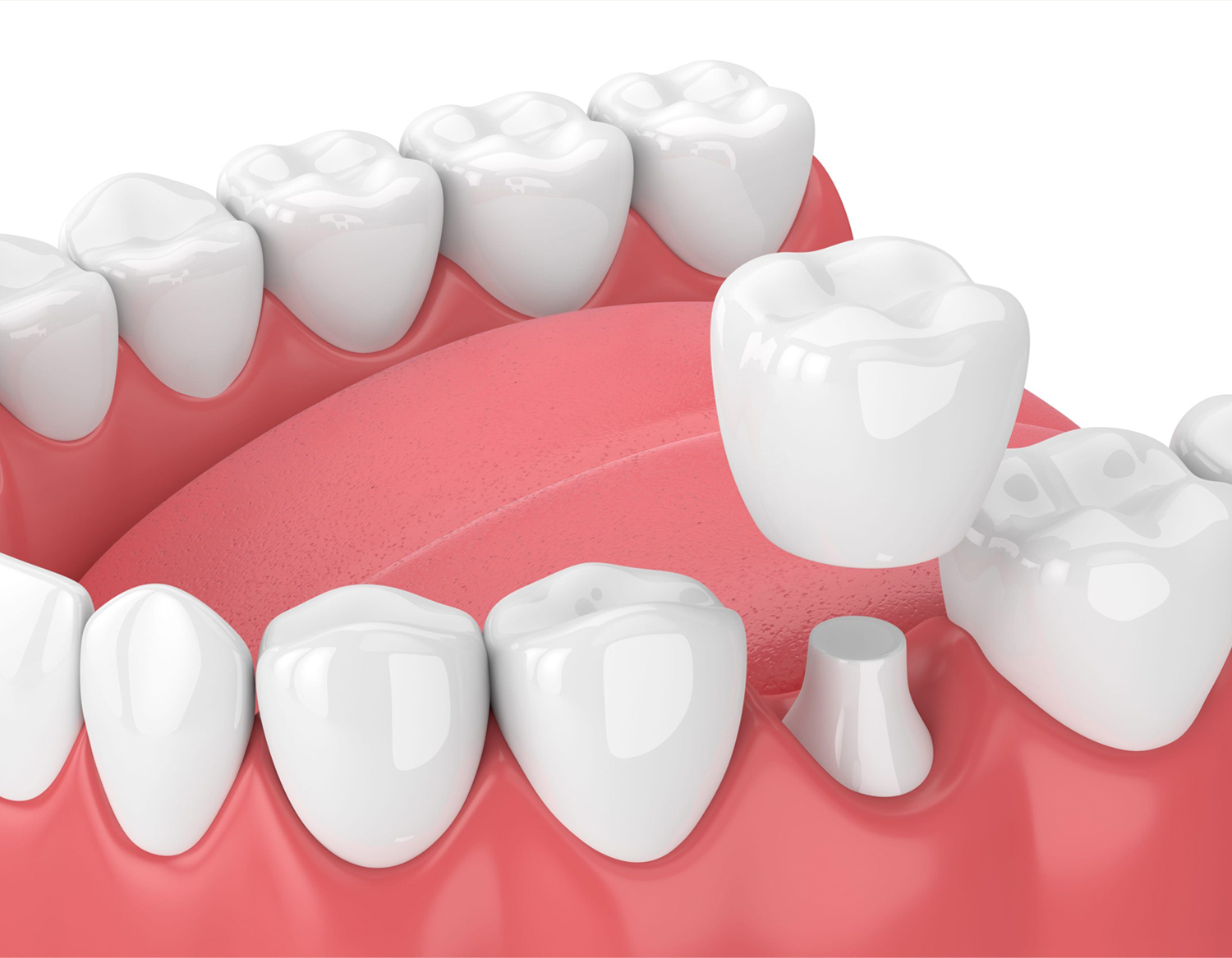A person feels self-conscious when smiling, eating or talking because they are not satisfied with their appearance. This is a reason dental implants are becoming popular as a solution to replace lost teeth and improve your oral health, smile and confidence.
At Ava Dental Clinic, we offer several dental implant helping to keep your teeth strong and bright smile. Read the article below to understand more about our dental implants service.
What are dental implants?
Dental implant is a structure that replaces a missing tooth with a metal, screw-like post and an artificial tooth called a crown.
Dental implant is made up of 3 parts:
– Crown is tooth-shaped “caps” that can be placed over your tooth which are usually made of porcelain.
– Abutment is the object used to connect crown to screw, usually hexagonal or octagonal in shape.
– Base is a titanium screw that’s surgically placed into the jawbone, and combined with the jawbone to form a safe foundation for tooth replacement.
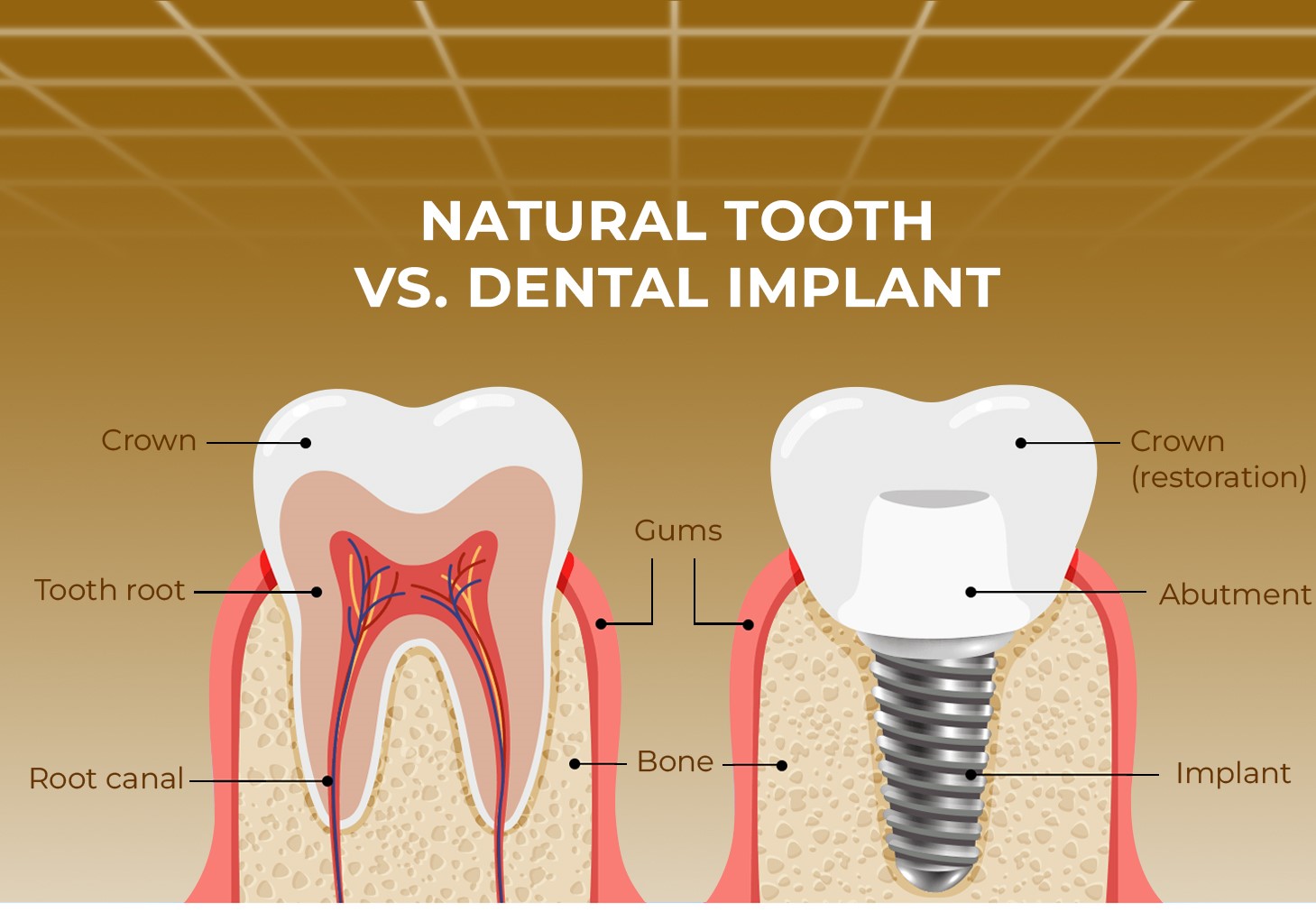
Who is a good candidate for dental implants?
– Have healthy mouth tissue and gums
– Good bone density to warrant an implant or be eligible for a bone graft
– There is no medical condition that affects the healing process after surgery
– Have one or more teeth that need to be replaced
– Can quit smoking or be a non-smoker
– Maintain good oral hygiene and visit your dentist regularly
Types of dental implants
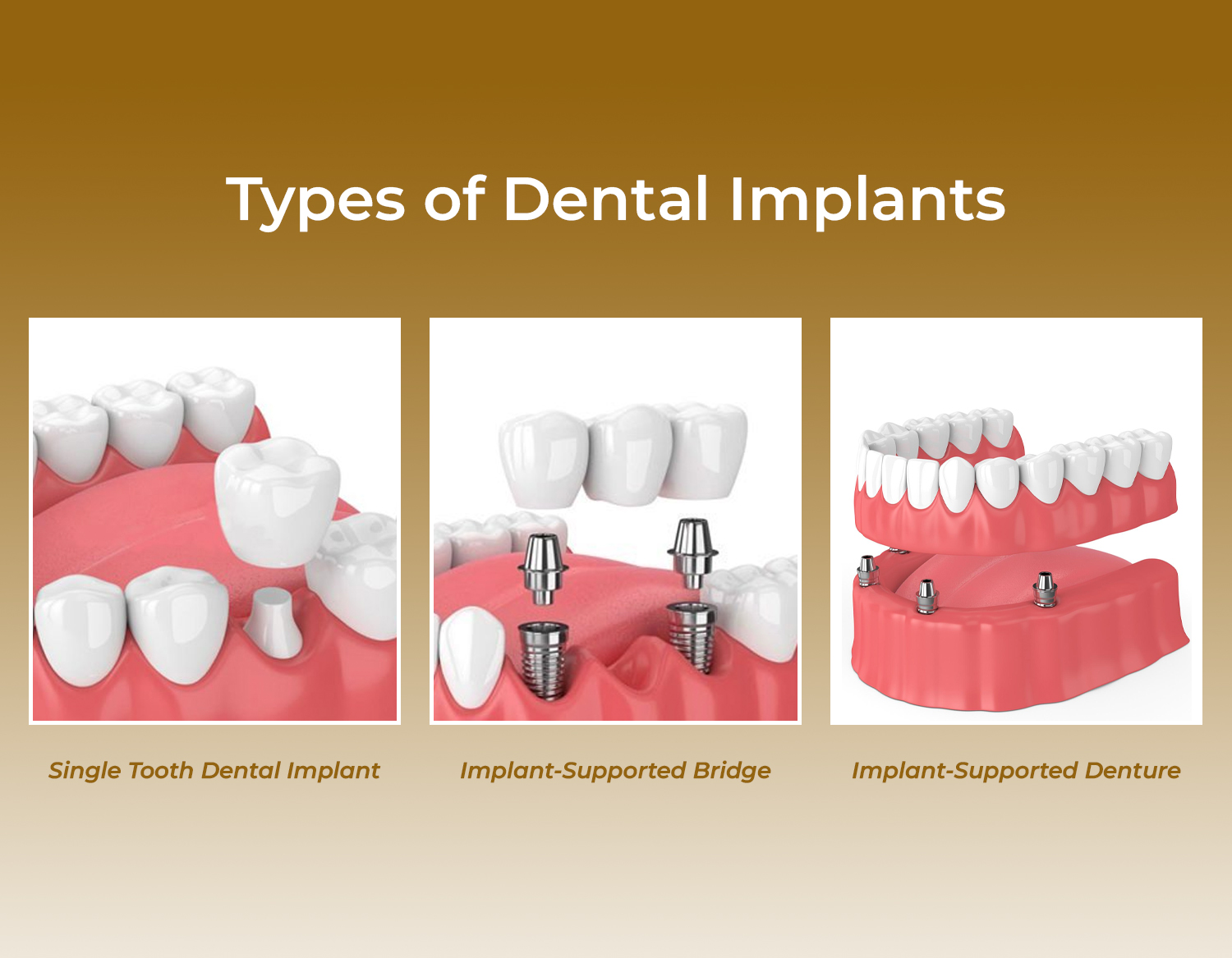
There are 3 main types of dental implants:
– Replacing a single tooth (Use a single tooth dental implant): Single dental implant with a crown replaces single missing teeth to prevent teeth from starting to shift toward the empty spaces.
– Replacing several teeth (Use a dental bridge): Multiple dental implants replace several teeth that have been lost together in one place.
– Full arch dental implants (Use an implant-retained denture):
+ Full jaw dental implant with fixed bridge on the implant.
+ Dentures: Implant-supported dentures are better maintained and more comfortable than wearing traditional dentures alone. 2 to 6 dental implants with rods or balls can be used for easy removal of dentures.
+ All-on-4 and All-on-6 dental implants are a method of using a tilted implant post to support and make the most of the available bone in the jaw arch. A small titanium screw is placed in the jaw to replace the root of the missing tooth.
+ Zygoma implants are used when teeth are bruised, missing, have severe bone loss, or have eroded jawbone after tooth extraction. This method only requires surgery once without implantation. Zygomatic implants are longer than traditional implants, providing a firm and stable placement in the bone.
How do dental implants work?
Normally, a dental implant procedure includes 6 steps:
Initial consultation
Before scheduling dental surgery, your dentist will schedule an initial consultation. They will ask about your medical history and examine your mouth and teeth to make sure you are eligible for this procedure.
The dentist will check to see if the jawbone and gums are strong enough to support the implant. If your jawbone cannot support the dental implant, your dentist may recommend a bone graft or sinus lift to ensure that the implant procedure is doable. At that time, you need to do a separate surgery and wait for the jaw bone to heal before proceeding with a dental implant.
Dental implant surgery
After completing the examination and giving the initial treatment, your dentist will schedule your dental implant surgery. You will be given a local anesthetic to facilitate the surgery.
Next, the dentist will make an incision on the gum to the jawbone, then place the dental implant directly into the bone. They will close the incision and clean the wound. (The length of surgery depends on the number of teeth you require).
For two weeks after dental implant surgery, you need to rest, avoid hard foods and do not smoke. Follow your dentist’s care instructions and get in touch as soon as a problem occurs.
Osseointegration
After dental implant surgery, the process of waiting for the dental implant to align with the jaw bone (called osseointegration) is an extremely important step when the dental implant will be fixed, ensuring the jawbone is strong and supportive of your facial structure.
Abutment surgery
When the osseointegration process has finished, the dentist will schedule a second surgery to attach the abutment to your dental implant. Specifically, after being sedated or a local anesthetic, the dentist will cut through the gum and attach the post to the dental implant. This surgery may be shorter than the first and usually takes about two weeks for the gums to heal.
Designing the artificial tooth/crowns
In the next step, the dentist will design an artificial tooth or crown. At Ava Dental Clinic, we will talk directly with customers to come up with a type of crown that is suitable for the customer’s face and meets their wishes.
Placing the artificial tooth/crowns
The final step is fitting the crown to the abutment. Then the dentist will check again to make sure that the abutment and crown are strong, creating a comfortable, confident for your smile.
Pros and cons of dental implants
Dental implants can significantly improve the quality of life and health of a person has lost a tooth. However, complications can sometimes occur. Complications can occur immediately after dental implant placement or 1-2 months later. To help you decide the best treatment option for you, we are happy to discuss the pros and cons of dental implants.
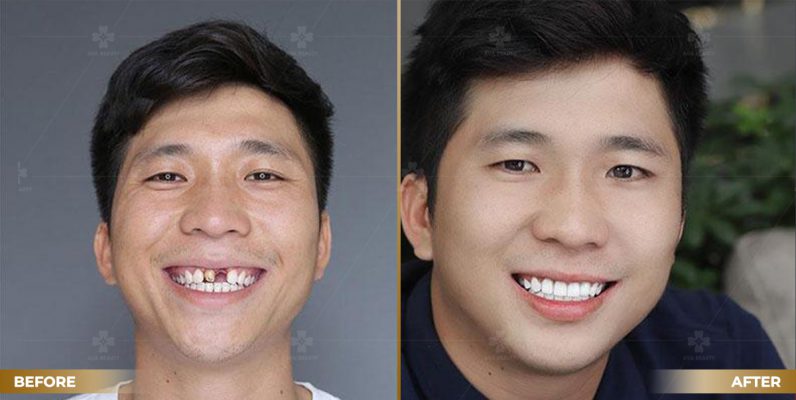
Pros of dental implants
– Being more confident in your ability to eat, laugh and talk
– Reducing the size and building a more natural bridge or denture
– No need to grind adjacent teeth to create a regular bridge shape
– Increasing chewing pressure with firm fixation of dental implant
– Improving the voice compared to wearing dentures
– Preventing tooth loss and supporting bones
– Preserving facial shape and jawbone integrity when losing a tooth
Cons of dental implants
– Rejection of transplant
– Infection of the implant site
– Injury to the implant area
– Damage to surrounding teeth, blood vessels, or jawbone
– Sinus problems when placed in the upper jaw improperly
– Prolonged bleeding
– Injury to surrounding tissues during surgery, such as sinus perforation
– Intraoperative trauma (eg, surrounding jaw fracture)
– Feeling that the tooth is loose or twisted in place because the abutment screw is loose
– Implant body failure (loose implant body) due to:
+ Systemic infection, may occur more in diabetic patients
+ Local infection in the bone and gums supporting the implant body
+ Slow healing, may be more likely in patients who smoke
– Difficulty in cleaning the gums around the implant, leading to poor oral hygiene
– Numbness after surgery due to nerve concussion or damage
How much do dental implants cost?
At Ava Dental Clinic, the cost of dental implants service depends on the post, abutment, and crown material used, averaging $335 – $1,475. Bone grafts, tooth extractions, CT scans and X-rays are billed separately.
Learn more about dental implants service fees here.
Above is some basic information about dental implants service at Ava Dental Clinic.
Ready to request an appointment with our dentists?
Call hotline: 0868.134.138 – 0346.134.138
You may also fill out the appointment online form and someone from our team will reach out to you soon.
>>>>> View more: Ava Dental Clinic Fanpage

